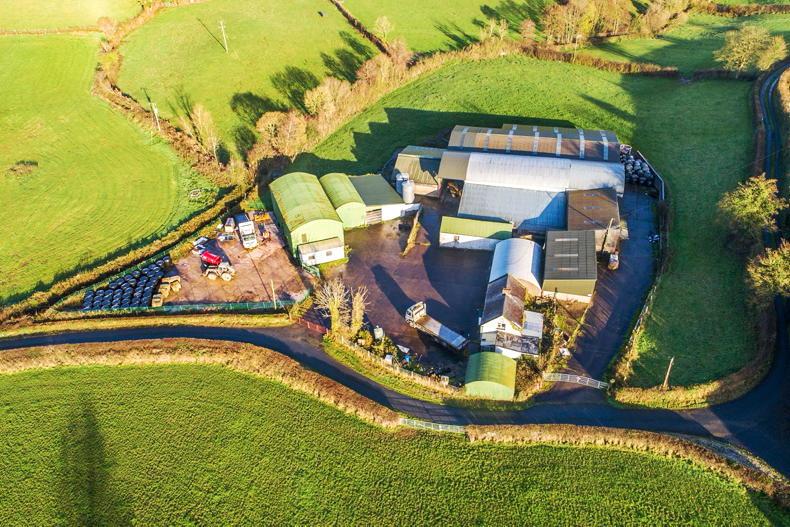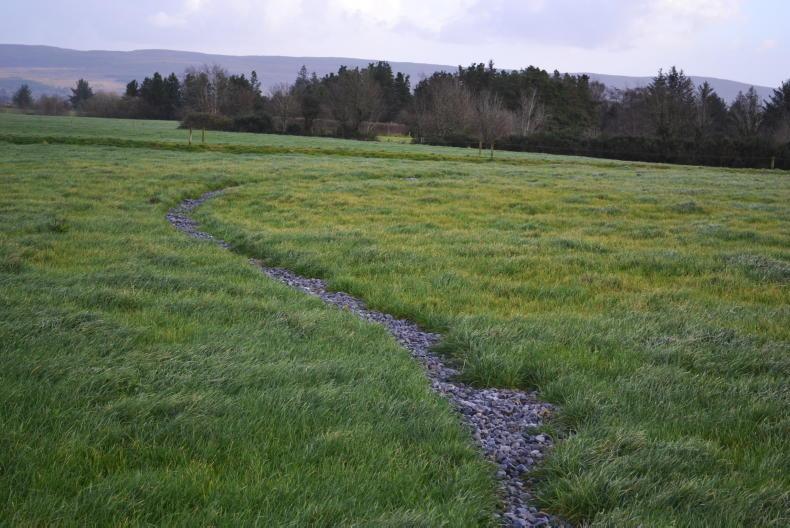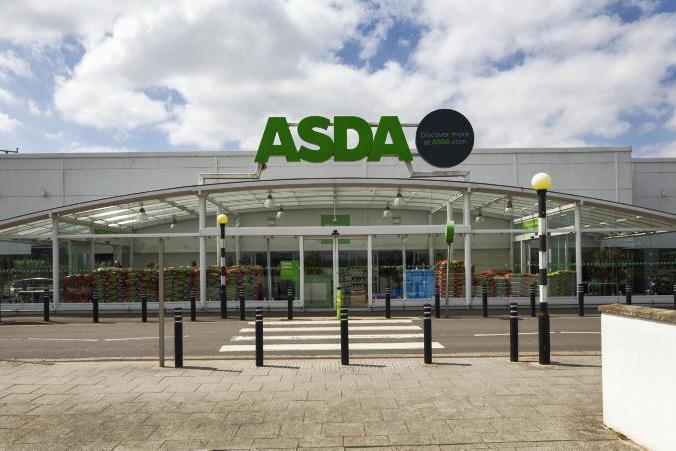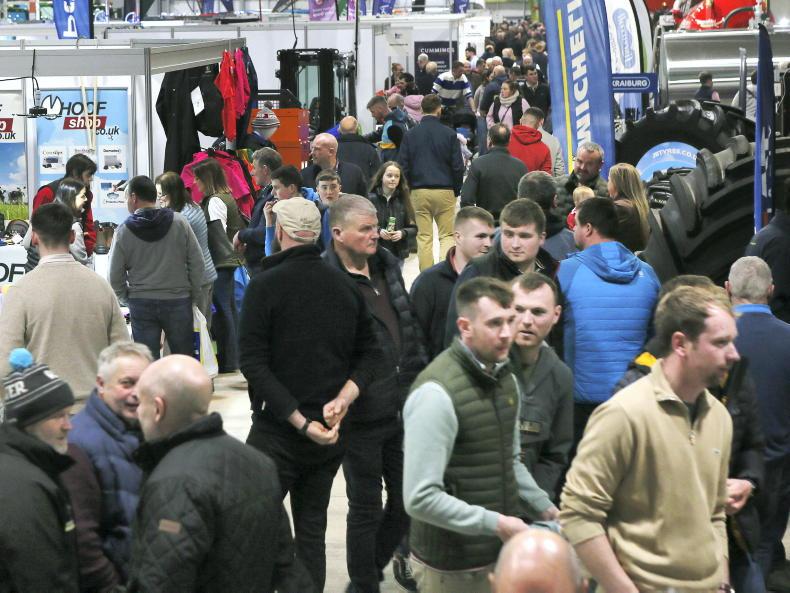"We want to do real farming and show everybody what real farming is. So whatever happens on the farm, we show it on television.”
That’s Jeremy Clarkson’s short synopsis of his TV show, Clarkson’s Farm, as he speaks ahead of its upcoming launch.
The first two instalments were a huge hit with audiences - farmers and non-farmers alike - partly down to the show’s authenticity.
The trials and tribulations of the farm are shown - warts and all.
“Farming on television has been portrayed in the past as fresh straw, fluffy lambs, agreeable calves - a bit like Babe. I had it in my head before we ever started the farm that farming wasn't like that – that it was much dirtier and harder, and I always wanted to show it like it actually is,” he explains.
Now the much anticipated third instalment of Clarkson’s Farm is nearly here, with Clarkson, Lisa Hogan, Kaleb Cooper and Charlie Ireland back on screen.
Part one (episodes one to four) will launch on Prime Video on 3 May, followed by part two (episodes five to eight) on 10 May.
Challenges and chances
The series opens with the council serving a closure notice on the restaurant that opened at the end of series two, with further issues arising in relation to the farm shop and its car park.
Running into further problems, many farmers will be able to relate to Clarkson as the weather plays havoc with his crops.
To find new income streams, Jeremy decides to “farm the unfarmed” to try to make money from the 500ac of hedgerows and woodland that makes up half his land in the Cotswolds.
Clarkson explains that much of the series revolves around a bet he and Cooper made on who could make the most money.
“We have a 1,000ac farm, but since I bought it in 2008, we've only ever farmed 500ac of it and the other 500ac is wildflower meadows, streams, woodland and rough ground.
“There are no crops growing, no animals, just countryside because the state of farming is so parlous at the moment. I bet Kaleb that I could earn more money from doing little projects on unfarmed land than he could from farming 500ac.
“So while he was stuck with the traditional wheat, barley and arable farming, I started harvesting blackberries, planting mustard and using tiny little pockets of unfarmed land around the place.
“We harvested the nettles which normally are just a nuisance and tried to make them into soup. I got pigs into the woods. Woods are normally empty of cash, no money comes from them, so I just did little bits and bobs like that to see if I could make more than he did,” he adds.
Pigs
Series three sees the introduction of pigs to Diddly Squat Farm, which Clarkson’s partner Lisa Hogan (who hails from Ireland) gets involved with.
“The sows were giving birth,” Clarkson explains, “but it was always in the middle of the night and it was bitterly cold. When you've got a sow that's in trouble, you have to help out and the fact is that Lisa’s hands are smaller than mine so she was the first to say, ‘It has to be me, it would be ridiculous to put your big old boxing gloves up the sow’.
“She went literally shoulder deep. She did say afterwards at least it was warm up there.”
Lisa says herself she was surprised at how attached she got to the pigs and how upset she was when they became unwell.
“Jeremy's always loved pigs, I didn’t think I’d be that enamoured by pigs, but I did get really close to them as people will see.
“Farming’s just sad. The animals become your friends and you're isolated – there are certain farms that are really isolated – and the animals become your family.
“When they become unwell, you're losing members of your animal family. Imagine the farmers that are alone and having to do it with nobody around them when they’re losing animal after animal. It’s so difficult,” she adds.
Weather and red tape
Of course, it wouldn’t be Clarkson’s Farm if Cooper - Clarkson’s farm guru - wasn’t back to bump heads with him.
Many Irish farmers will empathise with Cooper when he says he struggled with the harvest.
“It was pretty wet over the summer and we had a very wet harvest, so when you first see us, it’s a bad start. But we changed things up a little bit.
“Jeremy made me farm manager. I don’t know why he did it this year because I've been doing it for the last five years, let's face it. But I’m farm manager on paper now because apparently before that I was just a ‘farm worker’, as everyone keeps telling me.
“It was a really tricky start to the year. I made the decision to plant some rapeseed [oilseed rape] even though it was a gamble and I knew it might not work, but that highlights that farming is a risky job.
“You're risking money all the time and worse than that, I'm risking someone else's money, but we're a team at the end of the day,” he explains.
While the show is both well-known and well-liked for its comedic elements, series three also gets serious in showing the red tape farms face and the hoops they must jump through.
Cooper says he is passionate about getting young people into farming, but it’s difficult at the moment when “the farming industry is on its knees”.
“I always try to be positive, don't get me wrong, but when you see what the government is doing at the moment, it makes you realise just how much the public need to know about how this will affect not just farmers, but everyone.
“It doesn’t feel like the government is acting to secure farming’s future and if they don’t, a lot more than just our livelihoods will be put at risk,” he explains.
Post-Brexit
Charlie Ireland, an agronomist who advises Clarkson, explains that the farm (along with other UK farms) is adapting to a less-subsidised post-Brexit era, which influenced the decision to diversify the farm.
“Since Brexit, the subsidies for farmers have reduced and there is a big shift in farming. Since series two, we’ve been talking about Rishi’s [Sunak, the UK Prime Minister] ‘public money for public goods’ idea and we’re only just starting to learn what that means.
“Basically, we can't carry on doing what we've been doing forever, but the risk of change is big because there’s no subsidy to fall back on.
“Therefore, the idea of diversifying is a good one, but there is considerable risk involved and it’s very challenging. Developing an idea and running with that idea is a lot of work, it can involve a lot of learning and there are many obstacles to overcome,” he adds.
While times may be tough, you can be guaranteed Clarkson’s crew will get through it. And maybe even have a laugh along the way.
Read more
Podcast: Jeremy Clarkson talks farming
"We want to do real farming and show everybody what real farming is. So whatever happens on the farm, we show it on television.”
That’s Jeremy Clarkson’s short synopsis of his TV show, Clarkson’s Farm, as he speaks ahead of its upcoming launch.
The first two instalments were a huge hit with audiences - farmers and non-farmers alike - partly down to the show’s authenticity.
The trials and tribulations of the farm are shown - warts and all.
“Farming on television has been portrayed in the past as fresh straw, fluffy lambs, agreeable calves - a bit like Babe. I had it in my head before we ever started the farm that farming wasn't like that – that it was much dirtier and harder, and I always wanted to show it like it actually is,” he explains.
Now the much anticipated third instalment of Clarkson’s Farm is nearly here, with Clarkson, Lisa Hogan, Kaleb Cooper and Charlie Ireland back on screen.
Part one (episodes one to four) will launch on Prime Video on 3 May, followed by part two (episodes five to eight) on 10 May.
Challenges and chances
The series opens with the council serving a closure notice on the restaurant that opened at the end of series two, with further issues arising in relation to the farm shop and its car park.
Running into further problems, many farmers will be able to relate to Clarkson as the weather plays havoc with his crops.
To find new income streams, Jeremy decides to “farm the unfarmed” to try to make money from the 500ac of hedgerows and woodland that makes up half his land in the Cotswolds.
Clarkson explains that much of the series revolves around a bet he and Cooper made on who could make the most money.
“We have a 1,000ac farm, but since I bought it in 2008, we've only ever farmed 500ac of it and the other 500ac is wildflower meadows, streams, woodland and rough ground.
“There are no crops growing, no animals, just countryside because the state of farming is so parlous at the moment. I bet Kaleb that I could earn more money from doing little projects on unfarmed land than he could from farming 500ac.
“So while he was stuck with the traditional wheat, barley and arable farming, I started harvesting blackberries, planting mustard and using tiny little pockets of unfarmed land around the place.
“We harvested the nettles which normally are just a nuisance and tried to make them into soup. I got pigs into the woods. Woods are normally empty of cash, no money comes from them, so I just did little bits and bobs like that to see if I could make more than he did,” he adds.
Pigs
Series three sees the introduction of pigs to Diddly Squat Farm, which Clarkson’s partner Lisa Hogan (who hails from Ireland) gets involved with.
“The sows were giving birth,” Clarkson explains, “but it was always in the middle of the night and it was bitterly cold. When you've got a sow that's in trouble, you have to help out and the fact is that Lisa’s hands are smaller than mine so she was the first to say, ‘It has to be me, it would be ridiculous to put your big old boxing gloves up the sow’.
“She went literally shoulder deep. She did say afterwards at least it was warm up there.”
Lisa says herself she was surprised at how attached she got to the pigs and how upset she was when they became unwell.
“Jeremy's always loved pigs, I didn’t think I’d be that enamoured by pigs, but I did get really close to them as people will see.
“Farming’s just sad. The animals become your friends and you're isolated – there are certain farms that are really isolated – and the animals become your family.
“When they become unwell, you're losing members of your animal family. Imagine the farmers that are alone and having to do it with nobody around them when they’re losing animal after animal. It’s so difficult,” she adds.
Weather and red tape
Of course, it wouldn’t be Clarkson’s Farm if Cooper - Clarkson’s farm guru - wasn’t back to bump heads with him.
Many Irish farmers will empathise with Cooper when he says he struggled with the harvest.
“It was pretty wet over the summer and we had a very wet harvest, so when you first see us, it’s a bad start. But we changed things up a little bit.
“Jeremy made me farm manager. I don’t know why he did it this year because I've been doing it for the last five years, let's face it. But I’m farm manager on paper now because apparently before that I was just a ‘farm worker’, as everyone keeps telling me.
“It was a really tricky start to the year. I made the decision to plant some rapeseed [oilseed rape] even though it was a gamble and I knew it might not work, but that highlights that farming is a risky job.
“You're risking money all the time and worse than that, I'm risking someone else's money, but we're a team at the end of the day,” he explains.
While the show is both well-known and well-liked for its comedic elements, series three also gets serious in showing the red tape farms face and the hoops they must jump through.
Cooper says he is passionate about getting young people into farming, but it’s difficult at the moment when “the farming industry is on its knees”.
“I always try to be positive, don't get me wrong, but when you see what the government is doing at the moment, it makes you realise just how much the public need to know about how this will affect not just farmers, but everyone.
“It doesn’t feel like the government is acting to secure farming’s future and if they don’t, a lot more than just our livelihoods will be put at risk,” he explains.
Post-Brexit
Charlie Ireland, an agronomist who advises Clarkson, explains that the farm (along with other UK farms) is adapting to a less-subsidised post-Brexit era, which influenced the decision to diversify the farm.
“Since Brexit, the subsidies for farmers have reduced and there is a big shift in farming. Since series two, we’ve been talking about Rishi’s [Sunak, the UK Prime Minister] ‘public money for public goods’ idea and we’re only just starting to learn what that means.
“Basically, we can't carry on doing what we've been doing forever, but the risk of change is big because there’s no subsidy to fall back on.
“Therefore, the idea of diversifying is a good one, but there is considerable risk involved and it’s very challenging. Developing an idea and running with that idea is a lot of work, it can involve a lot of learning and there are many obstacles to overcome,” he adds.
While times may be tough, you can be guaranteed Clarkson’s crew will get through it. And maybe even have a laugh along the way.
Read more
Podcast: Jeremy Clarkson talks farming









SHARING OPTIONS